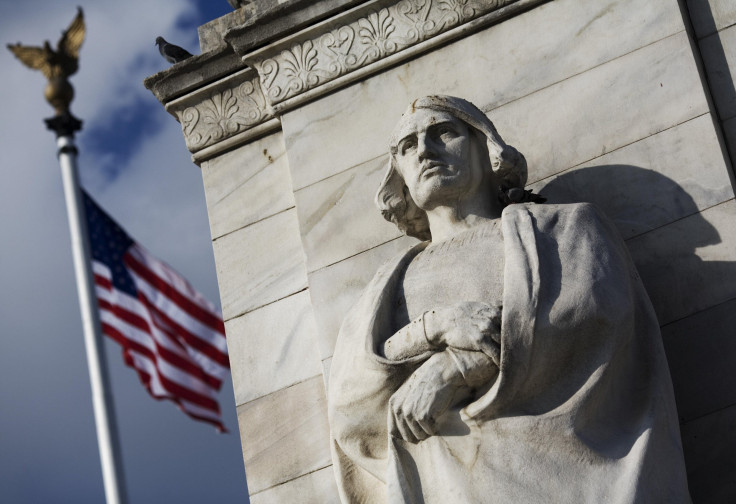Columbus Day 2019: Who Gets Holiday Off? Why The U.S. Observes Oct. 14

On Oct. 14, many Americans will celebrate Columbus Day, as it is observed every year on the second Monday in October. However, the holiday has both a long and somewhat controversial past. Why do we observe it and who gets the day off?
Columbus Day, which commemorates Christopher Columbus' landing in the Americas in 1492, was celebrated as early as the 18th century. In fact, the first official celebration took place in 1792.
Following the initial recognition, in 1892, President Benjamin Harrison encouraged Americans to mark the 400th anniversary with various festivities. However, it did not become an official federal holiday until 1937, thanks to President Franklin D. Roosevelt.
Due to Christopher Columbus' controversial past, many over the years have argued that changes should be made to the holiday. As of now, several U.S. cities and states have already opted to change the day of remembrance. Alaska, Hawaii, and Oregon are among the few states which have officially changed Columbus Day to Indigenous Peoples Day. Additionally, cities such as Los Angeles and Denver have also decided to swap out the name.
As for whether or not you may have the day off work, it depends on where you live. According to the Pew Research Center, it is one of the most inconsistently celebrated U.S. holidays. Currently, only 21 states, plus American Samoa and Puerto Rico, give government employees the day off. Most banks and bond markets that deal with U.S. government debt will also close for the day, but the stock markets will remain open.
© Copyright IBTimes 2025. All rights reserved.





















